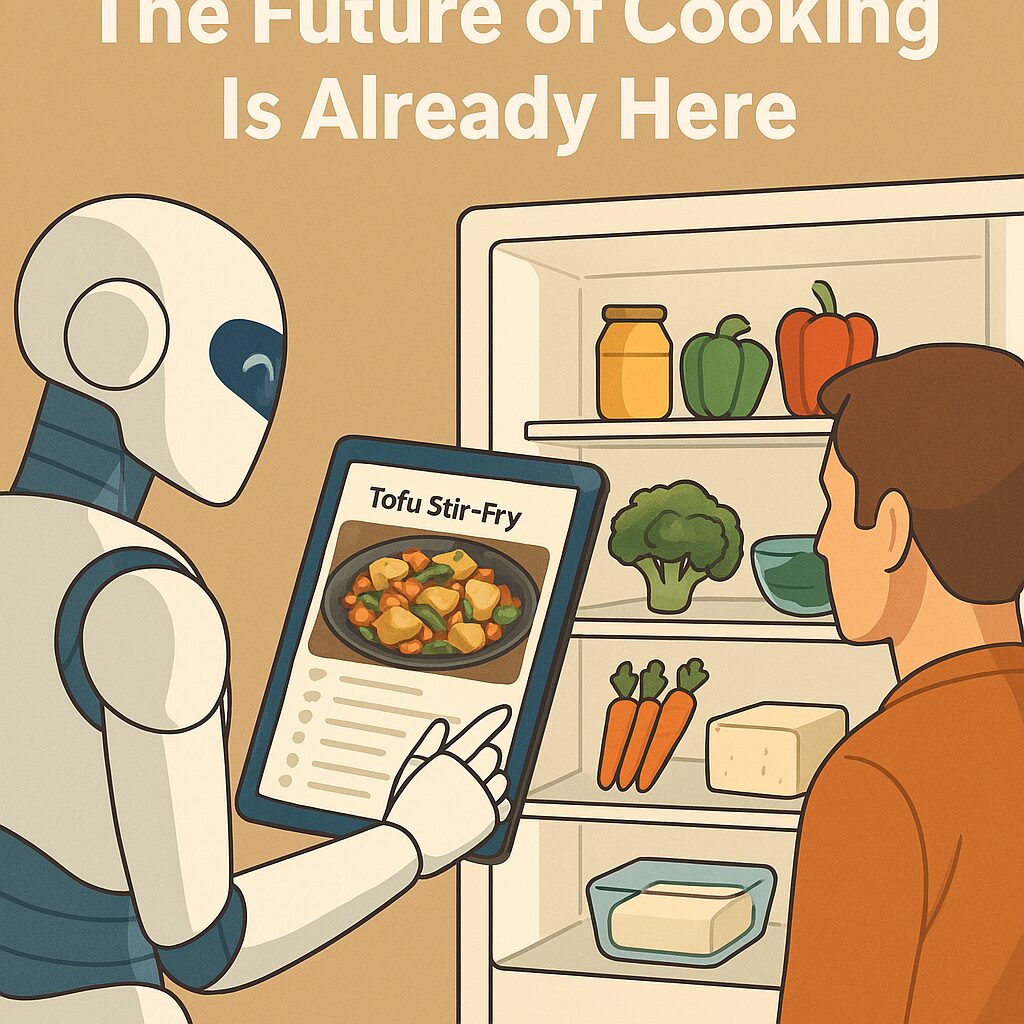Introduction
Imagine opening your fridge, snapping a photo of its contents, and receiving a gourmet recipe tailored to your dietary needs, cooking skill level, and time constraints—instantly. Welcome to the world of AI-generated recipes, where artificial intelligence is transforming how we cook, eat, and think about food.
This article explores the technology behind AI recipe generation, its benefits, limitations, and the future of culinary creativity in a data-driven kitchen.
🤖 What Are AI-Generated Recipes?
AI-generated recipes are culinary instructions created by machine learning models trained on vast datasets of cookbooks, food blogs, ingredient databases, and user preferences. These systems can:
- 🧠 Understand ingredient combinations and cooking techniques
- 📸 Generate recipes from photos of ingredients or pantry scans
- 🧂 Adapt to dietary restrictions and flavor preferences
- 🕒 Suggest meals based on available time and skill level
- 🧪 Learn from user feedback to improve future suggestions
Popular platforms like DishGen, cookAIfood, and MealPractice are already offering personalized recipe generation tools.
📈 How AI Is Revolutionizing Home Cooking
| Feature | Traditional Cooking | AI-Enhanced Cooking |
|---|---|---|
| 🧾 Recipe Discovery | Browsing cookbooks or websites | Instant suggestions based on inputs |
| 🧂 Ingredient Use | Manual planning | Smart pairing and waste reduction |
| 🧠 Personalization | Limited to known preferences | Adaptive to dietary, cultural, and taste |
| 🧪 Experimentation | Trial and error | Safe, scalable ideation |
| 📊 Feedback Loop | Manual adjustments | Continuous learning from user ratings |
AI doesn’t just suggest recipes—it learns your palate and evolves with your cooking habits.
🧬 The Technology Behind AI Cooking
AI recipe generators rely on:
- Natural Language Processing (NLP): To understand and generate coherent instructions
- Computer Vision: To identify ingredients from images
- Large Language Models (LLMs): Trained on millions of recipes and food articles
- Reinforcement Learning: To improve suggestions based on user feedback
These tools don’t retrieve existing recipes—they generate new ones by predicting ingredient combinations and cooking steps.
🌍 Benefits of AI-Generated Recipes
- 🥦 Reduces food waste by using available ingredients
- 💰 Saves money through efficient meal planning
- 🧑🍳 Empowers novice cooks with step-by-step guidance
- 🧠 Sparks creativity with unexpected flavor pairings
- 🌱 Supports sustainability by optimizing resource use
Whether you’re a home cook or a restaurant owner, AI can be a powerful culinary partner.
⚠️ Limitations and Ethical Considerations
Despite its promise, AI-generated cooking comes with caveats:
- ❌ AI lacks taste, smell, and real-world experience
- ⚠️ Safety risks if ingredients are misinterpreted (e.g., toxic combinations)
- 🧑🍳 Potential erasure of human creativity and cultural nuance
- 📚 Ethical concerns around recipe plagiarism and attribution
AI should be used as a tool—not a replacement—for human expertise and intuition.
🔮 The Future of AI in Cooking
Looking ahead, expect innovations like:
- 🧠 Emotion-aware recipe suggestions based on mood
- 🧑🍳 AR-guided cooking with real-time visual overlays
- 🌍 Global cuisine fusion powered by multilingual models
- 🧬 Nutritional optimization based on biometric data
AI won’t just help us cook—it will redefine how we connect with food.
🌐 SEO Optimization Summary
✅ Meta Title: “AI-Generated Recipes: The Future of Cooking Is Here” ✅ Meta Description: “Explore how AI-generated recipes are transforming home cooking. Discover the tech, benefits, and ethical questions behind algorithmic cuisine.” ✅ Keywords: AI recipes, AI cooking assistant, future of cooking, DishGen, cookAIfood, AI-generated meals, smart kitchen technology ✅ Formatting Tips:
- Use structured headings (H1–H3)
- Include tables and bullet points for readability
- Embed alt text in visuals (e.g., “AI suggesting recipe from fridge photo”)
- Keep paragraphs concise and keyword-rich
Conclusion
AI-generated recipes are more than a novelty—they’re a glimpse into the future of food. As algorithms learn to cook, they offer convenience, creativity, and customization at scale. But the heart of cooking—its emotion, culture, and human touch—must remain at the center.
In the kitchen of tomorrow, the smartest chef may be made of code—but the soul of the meal will still be yours.

